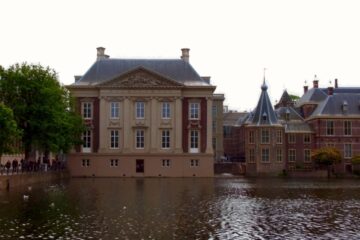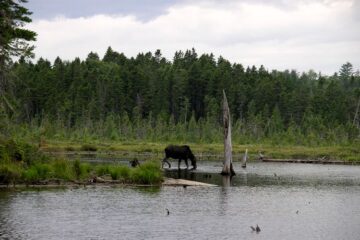
Of course, scientists know the applications they work on will have an impact on society. Actually, this is often what drives them. That doesn’t necessarily mean they have a concrete view of this impact, as it is fairly remote from their daily routines. Even so, developing impact scenarios at an early stage could have significant benefits.
Suppose you are a PhD-student working on a new application of certain nanoparticles. Naturally, your first priority will be to get the technology working. After all, this is largely what your thesis will be evaluated on. There is no immediate scientific need to consider the risk your nanoparticles might pose once released into the environment. This will depend on the eventual business model – and that is not your most pressing interest as an up and coming scientist either.
NanoNextNL
Understandable though this situation is, a scientific project should not be undertaken without a broader understanding of its possible consequences, says assistant professor Kornelia Konrad, who has done extensive research into responsible research and innovation within NanoNextNL, the Dutch national research programme for nanotechnology.
‘The general idea that a broader view is desirable, is easily acknowledged’, she explains. ‘The question is how to implement it. One approach developed within NanoNextNL is giving courses so researchers are stimulated to think about the effects of their own project. Ideally, however, they should be supported to do this over a longer period of time, which is now done by offering coaching. Currently, a set of tools is under development that may help researchers to assess the consequences of their work.’
Nanotechnology has proved to be one sector where uncertainty about effects, as well as about what users precisely need, has resulted in a bottleneck for applications. Scientific breakthroughs are plentiful, but market penetration takes its time in some areas, because companies hesitate as the outlook for commercial performance or social acceptance is vague and uncertain. This in turn may at some point put a break on scientific progress. Hence, the case is clear for nanotechnologists to consider business models and environmental/social scenarios as they are developing their applications.
This is certainly not to say that the issues are less pressing in other fields. Konrad: ‘Although most expertise has been developed in the context of nanotechnology, other fields need to be explored as well, such as ICT and 3D printing.’
Demands on scientists
Now, Konrad and her colleague Bart Walhout, a PhD-student working on the governance of emerging technologies, are attempting to take to the European level the expertise acquired in the Netherlands and in other national projects. The aim is to develop a framework for governing research and innovation systems, which builds on existing practices to promote responsible forms of research and innovation. Also, it should facilitate responsible research and innovation for different circumstances and different technology fields.
‘This is not just about the internal workings of science’, Walhout says. ‘There is also a public policy component. For instance, scientists nowadays are almost solely evaluated on their publications and, sometimes, the economic relevance of their research. If other demands are made on scientists, this should be reflected in the way they are funded and evaluated.’
Actually, the research programme addresses three levels: the work floor of specific research projects, policy and the intermediate level of technology and application fields. The task is complex, Walhout concedes. ‘Most of the time it simply is not very clear what the impact of some development will be. You may have developed a diagnostic test or a sensor, the function of which is itself evident. Yet it may be difficult to predict how wide spread its use will be and in what way it will affect users and their surroundings.’
Complexity and difficulty are, of course, no deterrent for ambitious scientists. Actually predicting the future will remain as impossible as ever. However, anticipating possible developments through sophisticated scenario building and developing a toolbox of courses, knowledge bases, protocols for including expertise from various disciplines, public debate, and so on, can at least help to carefully steer research and innovation into useful directions.





